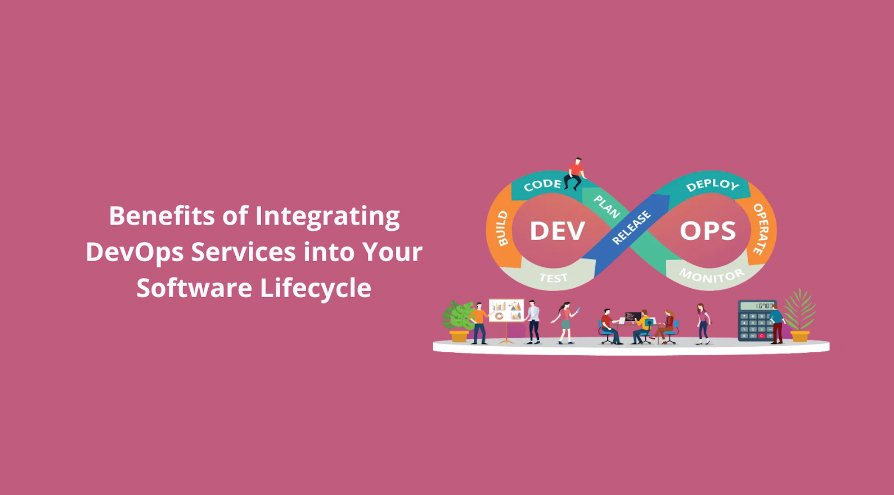DevOps Services
The introduction of DevOps practices has altered the way businesses provide software solutions. The name “DevOps,” which combines “development” with “operations,” emphasises collaboration, automation, and continuous improvement across the software lifecycle. DevOps services, which are crucial for facilitating this integration, make it easy for the development, testing, deployment, and operations teams to coordinate. This blog will explore the various benefits of incorporating DevOps Services into your software lifecycle and look at how crucial DevOps Course is for fully understanding these services.
DevOps Services: A Fundamental Overview
Before discussing the benefits of DevOps services, it is essential to understand their foundational concepts. A collection of techniques, tools, and procedures referred to as DevOps services streamline the software development lifecycle. These services close the communication gap between the development and operations teams, fostering synchronisation and collaboration. DevOps services such as monitoring, infrastructure as code (IaC), automated testing, and continuous integration and delivery (CI/CD) are routinely provided. By understanding and employing these services, organisations can achieve speedier software development cycles, higher-quality software, and greater customer satisfaction.
Benefits of Integrating DevOps Services
The advantages of incorporating DevOps Services are reviewed here:
- DevOps services place a strong emphasis on automation and continuous integration, which accelerates the delivery of software. Teams can release software changes more frequently, responding quickly to customer requests and market demands, thanks to automated testing, deployment pipelines, and CI/CD practices.
- Between the development and operations teams, DevOps dismantles silos to promote cooperation and communication. Teams function well with common goals and a cohesive strategy, minimising misunderstandings and speeding up issue-solving.
- Automated testing is encouraged across the entire product lifecycle by DevOps services. As a result, errors and problems are found earlier, improving the quality of the product. Thanks to continuous monitoring and feedback loops, teams can quickly resolve problems and stop them from getting worse.
- DevOps services’ automation and standardisation reduce the possibility of human error. Using automated deployment scripts and IaC, problems caused by configuration are less likely to occur across environments.
- Through techniques like containerization and cloud-native architecture, DevOps services optimise resource usage. These methods enable resource allocation and scaling that are efficient and cost-effective based on demand.
- Thanks to continuous monitoring and feedback loops in DevOps, teams may learn from user behaviour and application performance. Iterative development is driven by this feedback, enabling teams to make data-driven adjustments.
- Agile practises are supported by DevOps services, allowing teams to adjust to shifting requirements and market situations quickly. Rapid update deployment guarantees that software is competitive and up-to-date.
- With DevOps services, security is integrated into the entire software lifecycle. Early vulnerability detection via automated security testing and code analysis techniques reduces the likelihood of security breaches.
- DevOps services provide quick problem detection and remediation in the event of challenges. Teams can resolve problems before they impact users using automated monitoring and incident response systems.
- Combining quicker releases, better software quality, and effective issue response produces an enhanced customer experience. Customers gain from trustworthy software that fulfils their requirements and expectations.
Scalability and Resource Efficiency
Scalability and resource efficiency are principles that are in line with DevOps services. Thanks to cloud-native methodologies and containerization, organisations can scale resources up or down in response to demand, ensuring optimal resource utilisation. Teams may dynamically provide and de-provision resources using DevOps practises, which prevents overprovisioning and lowers costs while preserving performance.
Continuous Improvement and Innovation
The principles of DevOps are based on innovation and constant improvement. Teams are encouraged to embrace continuous learning and iteration via DevOps services. Teams discover areas for improvement, make adjustments, and innovate using procedures like retrospectives and feedback loops to remain ahead of rivals and changing market trends.
Business Agility and Competitive Advantage
Integrating DevOps services and improving technical aspects promotes business agility and gives organisations a competitive edge. Rapidly delivering high-quality software is in line with changing market demands. Adopting DevOps practises enables businesses to change course, grasp opportunities quickly, and set themselves apart from the competition by offering cutting-edge products and services to clients.
Improved Employee Satisfaction and Engagement
Integration of DevOps services can improve employee happiness and engagement. DevOps practises giving teams autonomy, ownership, and responsibility for the entire software lifecycle. People can contribute and see the immediate consequences of their efforts in a supportive and cooperative work environment fostered by this sense of ownership. Teams that successfully and effectively cooperate in software development often experience higher levels of job satisfaction and engagement, resulting in a more motivated and effective workforce.
Conclusion
The software lifecycle can benefit greatly from integrating DevOps services in development, operations, and customer satisfaction. By enrolling in DevOps courses, professionals can get insight into the theories and practices underpinning these services and maximise the potential of DevOps. Through greater collaboration, accelerated software delivery, and improved quality and customer experience, DevOps services assist enterprises in remaining competitive in a fast-shifting technological world. A culture of innovation and continuous improvement is promoted as software development procedures are optimised in organisations that embrace DevOps’ benefits.
